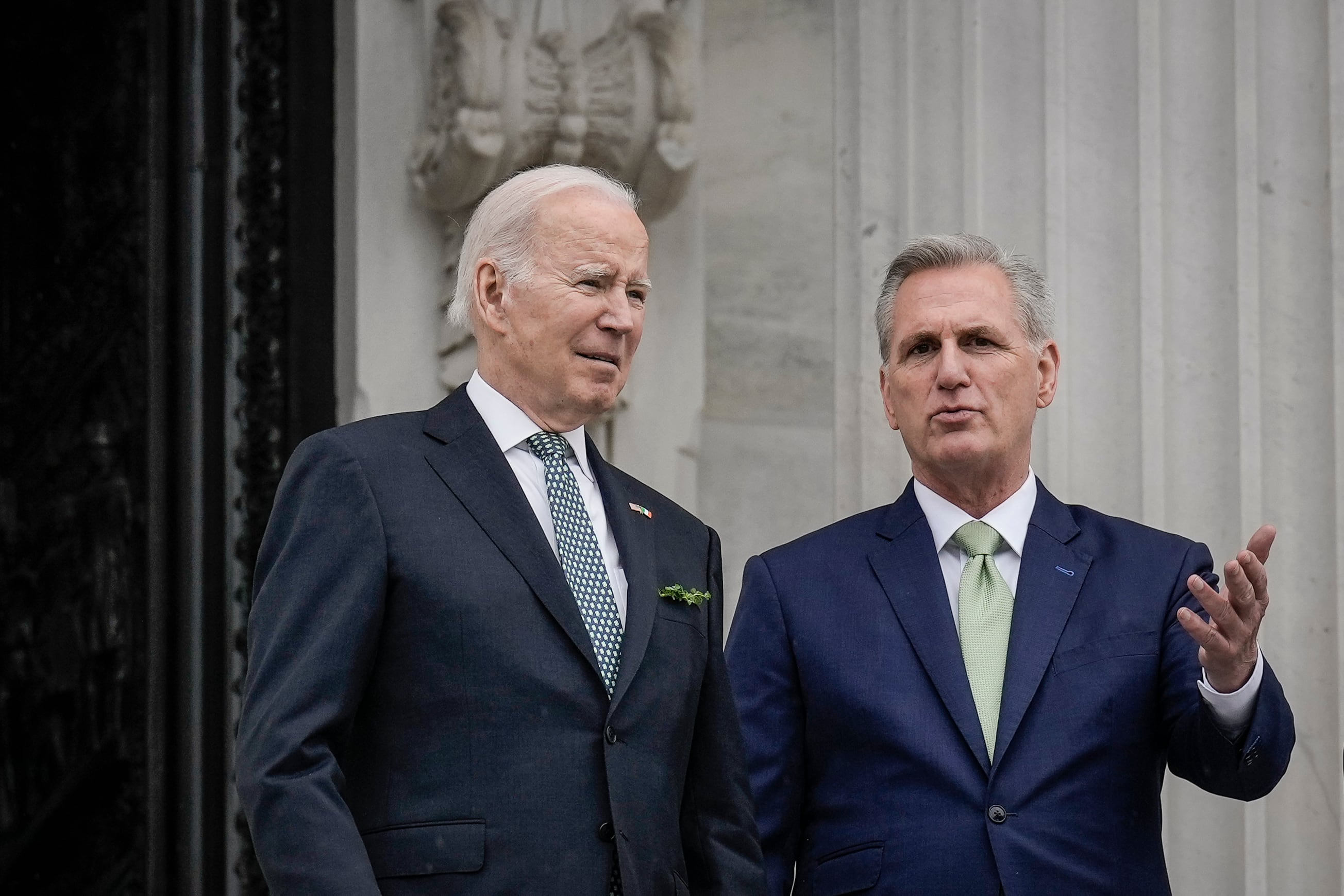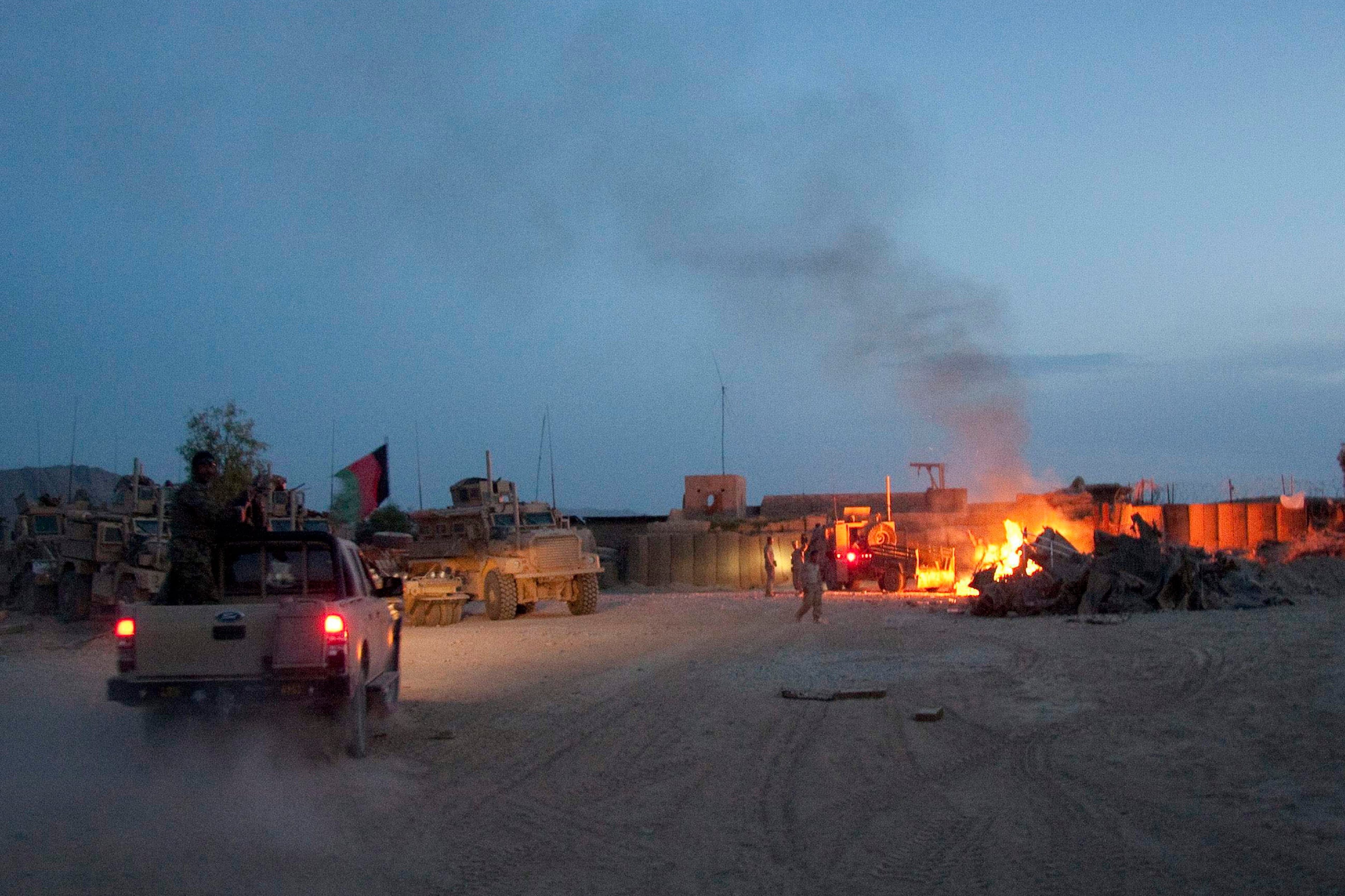Funding for veterans programs would go from being one of the most contentious spending debates on Capitol Hill to a bipartisan budget highlight under the debt limit deal set to be voted on by lawmakers this week.
Unlike most non-defense agencies, which will see cuts or flat budgets under the terms of the plan, the Department of Veterans Affairs would see a significant bump in spending in fiscal 2024, in line with both White House and House Republican appropriators’ plans.
That’s significant, because Democrats and Republicans on Capitol Hill over the last month have accused each other of politicizing veteran support and jeopardizing funding needed to maintain services provided through the department. The new deal wipes away most of that debate, locking in an increase of about 6% in veterans spending for next year.
RELATED

On Tuesday, the White House released a statement urging Congress to pass the agreement as soon as possible, noting in part that it “fully funds veterans’ health care and our obligations under the historic PACT Act.”
Similarly, in a Wall Street Journal op-ed published Sunday, House Speaker Kevin McCarthy, R-Calif., said the debt limit deal curbs wasteful government spending while “meeting our obligations to our veterans” by increasing money for those programs.
Under the plan, which will be considered in the House and Senate in coming days, total VA spending would increase to more than $320 billion, up from about $300 billion in the current fiscal year.
White House officials and Republicans on the House Appropriations Committee had said those increases would help support expanded medical care, mental health care, support for homeless veterans and a host of other programs.
One area where the group’s plan differed, however, was the Toxic Exposures Fund, created as part of the sweeping Promise to Address Comprehensive Toxics Act — or, PACT Act — last summer.
The fund assigns mandatory federal funding to cover the costs of benefits for veterans suffering illnesses stemming from toxins like burn pit smoke and chemical exposure. President Joe Biden had asked for about $20 billion in his budget request, money that would be protected somewhat from the annual budget process.
House Republicans countered in their budget draft with less than $5 billion in mandatory funds, and the rest left in the annual discretionary budget. They argued that forcing the extra money into the fund represented budgeting gimmickry.
But the full $20 billion would be locked into the Toxic Exposures Fund as part of the debt limit deal, taking the issue off the table for the rest of this summer’s budget debates.
RELATED

In a series of social media posts on Sunday, VA Secretary Denis McDonough said that level of funding “will allow VA to continue delivering care and benefits to veterans impacted by burn pits and other toxins while serving our nation.”
Veterans Affairs officials also highlighted separate provisions in the budget deal that would exempt veterans from new work requirements connected to food stamp aid for individuals aged 49 to 54. Those changes were key concessions demanded by Republican negotiators, but will not apply to any former military members or homeless individuals.
The debt ceiling compromise includes plans to raise the country’s borrowing power through next year’s presidential election in exchange for a two-year budget deal that holds all spending flat for 2024 except for VA and defense — which would get a 3.3% increase in 2024.
Lawmakers have less than a week to shepherd the debt deal through both chambers or risk triggering a debt default. Treasury officials announced on Friday that if the country’s debt ceiling is not raised by June 5, it could trigger a host of payment challenges for federal agencies, which in turn could trigger widespread negative economic issues for the country.
Previously, Veterans Affairs officials had warned that benefits checks, employee paychecks and medical care reimbursements could be delayed or halted if the debt ceiling is not lifted.
Leo covers Congress, Veterans Affairs and the White House for Military Times. He has covered Washington, D.C. since 2004, focusing on military personnel and veterans policies. His work has earned numerous honors, including a 2009 Polk award, a 2010 National Headliner Award, the IAVA Leadership in Journalism award and the VFW News Media award.





